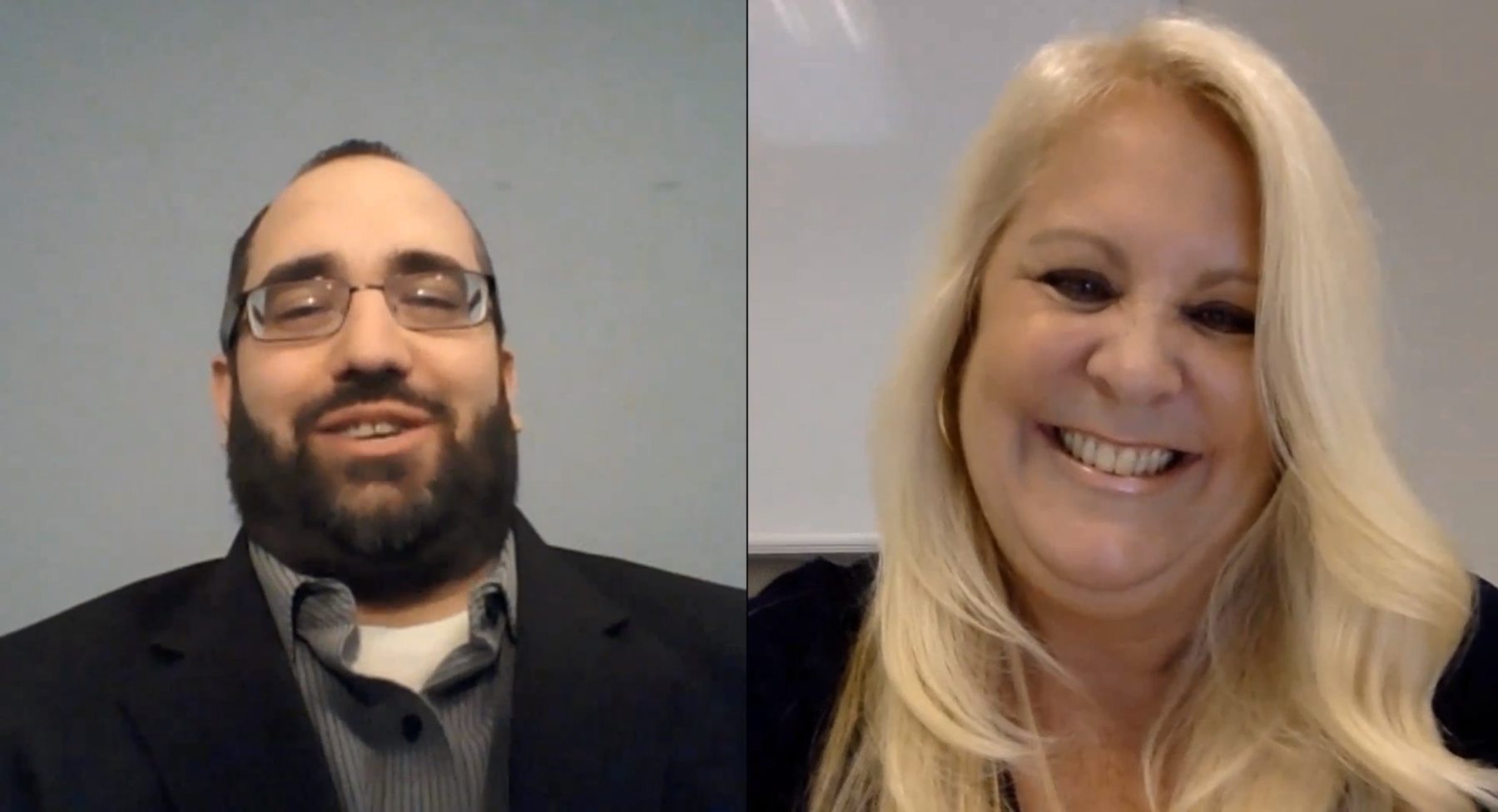Some pharma companies like to go on Twitter, find an uber patient, and then tick the box that they have engaged with patients. But, that isn’t enough. Brenda Snow, the CEO and Founder of Snow Companies—and our resident patient relations and healthcare communications expert—explains what companies actually must do to conduct sustained engagement and build real relationships with patients.
Furthermore, in this exclusive video interview, part of our Expert on Call video series, Brenda discusses how her first-hand experience as a MS patient has influenced her approach to helping pharma engage with patients and the changes she helped to implement in this industry as a result. And now, she will be able to do more as her company Snow Companies was acquired by Omnicom Health Group. Watch as Brenda explains how the merger will impact her company, why putting the focus on patients is so important, the keys to navigating regulation and legal issues when dealing with patients, and what authentic patient engagement actually means. To learn more, reach out to Brenda at Brenda@snow-companies.com.
Transcript:
Andrew Matthius: Hi. I’m Andrew Matthius, senior editor of PM360. And we’re here with another edition of our Expert on Call video series. Today, today I’m with Brenda Snow, the CEO and Founder of Snow Companies. Brenda is our resident patient relations and healthcare communications expert. How are you doing today, Brenda?
Brenda Snow: I’m doing great. Andrew. A little bit froggy from a cold. So, hopefully I won’t cough in everybody’s ear.
Andrew Matthius: Yeah. Hopefully we’ll get through it. Uh, but –
Brenda Snow: Yeah.
Andrew Matthius: Imagine the past couple of months have been a bit better for you then considering all of the waves you’ve been making. Why don’t you tell us about that latest acquisition that you guys were part of?
Brenda Snow: Great. Well, I would love to. So, you know, Snow Companies has been around in its official, as a corporation since early 2001. And I think we were really one of the first agencies to exclusively focus on the patient experience and the patient journey. And, we’ve just had tremendous success year over year which we feel really proud about.
Our nobles and mission one, and we worked on and off with a lot of the great agencies at the Omnicom Health Group over the years. And recently in February of this year we completed an acquisition. So, we’re the same old Snow. We just have big shoulders that we are with now with our, our good friends and fellow agencies at the Omnicom Health Group. So, it’s been absolutely terrific.
Andrew Matthius: So how does this make things different for you, uh, as, as Snow Companies now that you’re a part of Omnicom?
Brenda Snow: Well, I have a boss for the first time. [Laughs] No. But other than that, I think that’s one of the reasons why it was such a good, a good fit for us. They really embrace that we’re the experts at what we do and that our model and our approach is novel. And, so far, you know, it’s just been really, you know, supportive, collaborative, and basically you guys do what you do. Just keep doing a great job and keep supporting your clients and the patients and all of the disease categories that we work in.
And other than that, it’s been really seamless. It’s been a, a big positive for our employees here at Snow. They’ve got some additional training and development. So it’s just been a total positive, which is an answered prayer. Any time an owner does an acquisition you always have a little worry. But so far mine’s been just the perfect experience.
Andrew Matthius: So, I would imagine one of the reasons they want to align with you guys is when people talk about the patient experience a lot of times they reference the Brenda Snow story. So, can we hear that story straight from the source?
Brenda Snow: Yeah. So, the Brenda Snow story. Well, I’ll give you the executive summary version because this would be a far too long webcast and might even be too boring for people to hear. But ultimately, I think a lot of the people that do know me know that I live with multiple sclerosis. And I was diagnosed back in the early 1990s, 1993 to be exact. And back then, there was no approved treatments. There was really no kind of a grass roots type of a community. You had a big NGO that supported people with MS. But there wasn’t a lot of initiatives to really connect people and, and really move the needle with a first-person kind of a narrative healing.
And so, my journey with MS was very, very tough. I spent time in a wheelchair, had to learn how to walk again, lost my bladder control many public places, was temporarily blind. When that wasn’t the case, I saw two of everything. So, it was a rough few years but ultimately, you know, that experience of really being a patient who had a lot of needs that no facet was addressing really resulted in the impetus of starting the Snow Companies.
Andrew Matthius: Yeah. So, I would imagine your experience as a patient kind of gives you unique insights into why it’s so important for the industry to focus on patients.
Brenda Snow: Yeah. Absolutely.
Andrew Matthius: Can you expand on that considering, you know, a lot of people say that patients can prescribe their own medications. Others say maybe we shouldn’t be doing DTC advertising, the why it is so important to put this focus on patients.
Brenda Snow: Sure. Sure. I’d be happy to. I mean ultimately, I think, you know, from our perspective at Snow, we’re not moving the needle with big DTC ads and we’re not doing, you know, big, big, you know, categories and brands. We’re really focused on rare. We’re focused on niche. We’re focused on tough to treat. We’re focused on chronic. We’re focused on things that might have a difficult route of administration or really novel MOA. And then a lot of oncology too.
And, and ultimately, I think it’s really simple. When I started this 20 years ago I can’t tell you how many people I had laugh me out of a conference room where I said by giving patients the power to share their unique, original story with others you would move the needle not in only category awareness but ultimately probably help people understand how to have a more productive conversation with their healthcare professional about taking a treatment. And we’ve now seen this time and time again over, over the decades.
We’re currently working in about 62 or so different clients and represent over 150 brands. And all of them have a different kind of marketing mix. The only thing that’s the same are real people telling that story. And now like I said laughed out of conference rooms. We actually know now that there’s market research. There’s PET scans. There’s MRIs. There’s clinical trials that have actually proven by having a patient being able to share their story to another patient. It’s not only the way we learn—the way we retain information, but it’s ultimately one of the things that drives us to action. And that’s always been at the core of what we do.
Andrew Matthius: So then for the, uh, pharma market watchers out there what should they expect from a patient initiative? You know, how does it change actually getting these real patients involved?
Brenda Snow: Well, I think the first thing is hopefully it helps change and I’ve seen it, is your reputation. I mean let us not forget, you know, as much as I love my industry and pharma they rank right there with big tobacco and coal. So not the best reputation always. Right? So, I think the first thing is that by working with patients, you get authenticity. You get credibility. And those are two things that, you know, we see more and more. Not just in healthcare. You know, Amazon for example. Their whole business model now is connecting people to things that they want and others just like you.
And so, I think our industry really cannot be shortsighted anymore. If you were going to go out and buy an expensive automobile today you would have a relationship with the people that were manufacturing and selling you that. Same thing with a lot of these medications that have a high lifetime value. You know, the industry needs to know their patients. They need to listen to their patients and their consumer, their customer and actually develop programs and services that are meaningful for those said patient populations.
DTC commercials definitely have their place. I’m not saying that. But most of the things I work in, you’re not going to move a needle with an actor or an actress going on a surfboard through a field of flowers. Patients know—patients like me, that’s not what we need. So I think ultimately what, what industry can get is authenticity, credibility, and value. Actually know that the money they’re putting back into their marketing efforts or to research and development are the things that are helping them grow and sustain their commitment to that category for a long time.
Andrew Matthius: Now of course, whenever pharma markets do anything they have to get through the regulatory department.
Brenda Snow: Yeah. I know.
[Laughter]
Andrew Matthius: So, if they were to do a patient program with you, how would they get past compliance? Because, they like control and sometimes dealing with real patients you kind of lose some of that control.
Brenda Snow: That’s right. So I think that’s one of the reasons we get called the most. That’s one of the reasons I know where we’ve gotten other companies that they have maybe not been able to execute in that arena as well. We’ve had to clean up a few engagements. When we’ve taken some business unfortunately from, from other industries. But, but ultimately that is kind of our gold standard is, you know, I think of it sometimes as kind of you have the castle and the moat around it, and we dug a very, very deep moat for our company and for our clients. Really best in class when it comes to legal and regulatory and compliance.
So, the first thing that we would do, it just depends on who our partner is. Some organizations have a very deep bench of expertise in house. Some of them it might be the first time they’ve had a commercially available product and are really relying on our expertise. So, we have internal people here at Snow, a compliance attorney. We have people that all they do is report adverse events. We have people that just stay up to date on the FDA regulations.
So as we go into an engagement we’ll sort of assess with our client where they net out on a) being comfortable or not and then where we need to help shore up or provide key learnings in putting together a regulatory compliant program for them. Because the days of, “Oh we can’t do that with real patients,” those are over. You can definitely do most things to support patients and, working with patients and their family members that have these conditions and take your products.
Andrew Matthius: Is there anything you want to tell us working with patients that maybe pharma marketers don’t realize or don’t think about?
Brenda Snow: I think the one thing that they might get and realize but until you really go into the engagement that it needs to be sustained and long term. These are not transactional kind of programs. They’re not transactional types of relationships. Again, most of the times where I’ve seen people fall down that tried to do some of the things that Snow does is by thinking that they can go on Twitter and find this uber patient and because we can tick the box that we’ve worked with the patient, all is well.
Well, that’s not the case. We’re all human beings and you don’t ever want any—I certainly don’t—on anything that Snow works on ever want people feeling used or feeling like it’s transactional or a one-off to serve the specific purpose or just to drive sales. Because, I think if you do the right thing, those are byproducts of good business.
So ultimately, it’s a sustained engagement. If you’re going to build—whether it’s a patient leadership council or an ambassador program or have a phone-based mentor or call center opportunity, all of these things—you need to know that you’re going into it and that it needs to be sustained and that you’re actually building relationships with patients.
Andrew Matthius: Yeah. That’s great.
Brenda Snow: Yeah.
Andrew Matthius: Is there anything, any last or final thoughts you want to add about how to reflect the authentic patient voice in pharma marketing.
Brenda Snow: Well, I think that that’s the other thing. You know, the authentic voice really needs to be their voice. Right? So industry can have their brand goals and objectives. And that’s ok. That’s the business part of it. But if that’s the case and you want to work with patients, let’s work on finding the right people. Right? So it’s not just because they have a big Facebook community. It’s really finding the people whose real-life story and their narrative align with the goals and objectives on what you’re trying to do in that disease category.
And a lot of times, that’s trying to find a needle in a haystack. It’s not easy to always find the right patients. But ultimately whatever you’re trying to kind of do for your community or your brand, working with the patients whose stories mirror your goals will always, always, always, be better and be much more profound for the categories and the diseases that desperately need help in a lot of cases.
Andrew Matthius: All right. Well, thanks so much for taking the time to speak with us today.
Brenda Snow: You’re welcome. And I’ll say one more thing to you, Andrew. I’ve known you for a long time and thank you so much for interviewing me. But I’ll just say this, when I was diagnosed in 1993 it was a really, really dark time for me personally. And I know that MS, I just look at what’s happened in two decades. It’s absolutely amazing and I think because you can really look at MS as a category of adopting and doing a lot of things that we talked about today, building communities, drug approval, recruiting for clinical trials, developing best-in-class platforms, programs, services.
Here we are today with over 20 approved products. So, I think that there’s a place for all of these categories, and for all pharma marketers to remember at the end of the day they’re just somebody like me—and one day it actually might be you. So, it’s important to do the right thing. I always try to.
Andrew Matthius: Yeah. It’s important to do. If you’re interested in hearing more from Brenda and her unique insights you can always look online for her articles or the other articles from her authors at Snow Companies. Or you can reach out to her at Snow Companies. Thanks again, Brenda.
Brenda Snow: Thanks. Bye bye.







